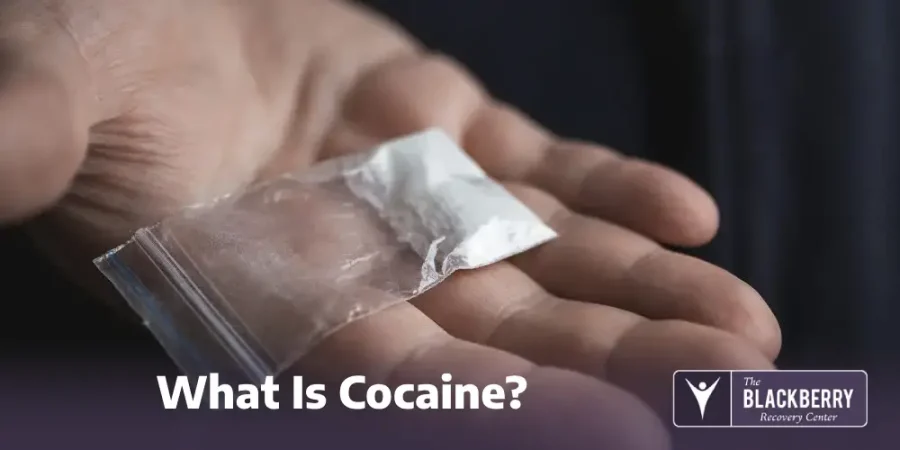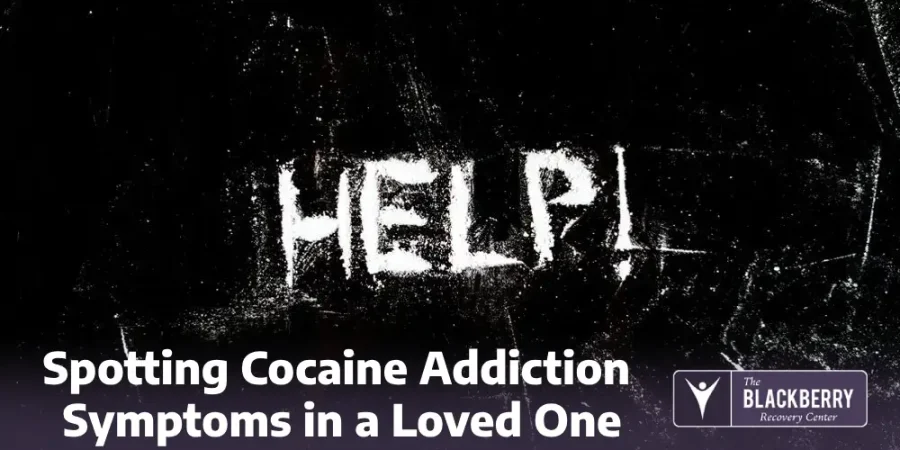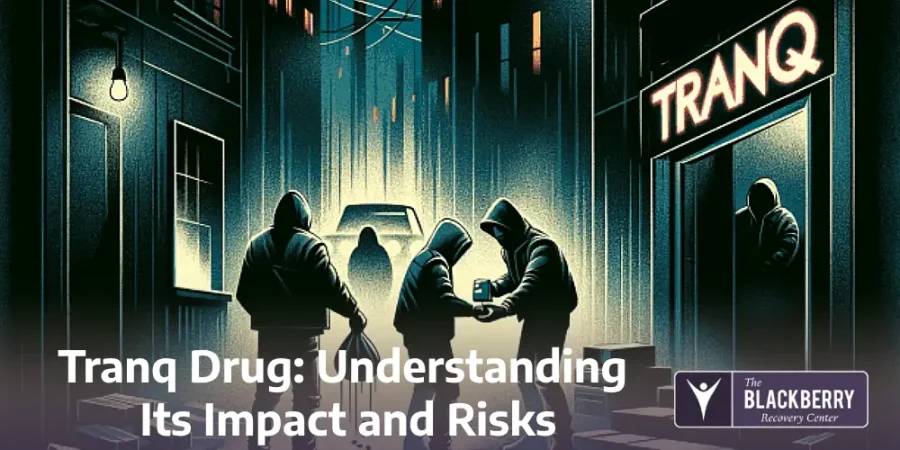If you suspect that a friend or family member is abusing cocaine, you’ve probably started looking for cocaine addiction symptoms. But what are they, and how can you tell if your loved one is a cocaine user? If you’d like to learn more about the signs and symptoms of cocaine use in a loved one, then read on.
What Is Cocaine?

The first step in identifying cocaine use is understanding exactly what this drug is. Cocaine is a remarkably powerful stimulant and, according to the National Institute on Drug Abuse, coca leaves (the source of cocaine) were commonly chewed on for thousands of years in South America due to their stimulating properties. However, cocaine has come a long way from those humble origins.
Today, cocaine is bought and sold as a powder form of the isolated cocaine hydrochloride chemical. Put simply, the stimulating chemical was taken from the leaves to increase its potency and create a high. Cocaine typically appears as an odorless, white powder, and drug dealers often cut, or mix, it with other substances to increase their profits. This could include baking soda, flour, talcum powder, or a variety of everyday ingredients.
If you find a white, crystalline powder in your loved one’s living space, there is a real chance that this could be cocaine. However, many cocaine users take the drug regularly without leaving evidence lying around. In these cases, you’ll need to look at their behaviors and changes in their physical appearance.
Signs and Symptoms of Cocaine Use
Drug addiction affects all facets of a person’s life. For that reason, cocaine addiction symptoms comprise three categories: behavioral, physical, and social. All of these come together to create the profile of a cocaine user, so you should consider each of them when trying to identify cocaine use in a loved one.
Behavioral Signs of Cocaine Abuse
Behavioral health encompasses a lot of different areas. These can include emotions, thought processes, and, of course, behaviors. Unfortunately, cocaine abuse does a lot to change these parts of a personality. The most common changes in behavioral health include:
- Insomnia
- Loss of appetite
- Increased confidence
- Overwhelming enthusiasm
- Irritability
- Engaging in risky behaviors
In short, your loved one may be using cocaine if they display drastically increased energy and poor decision-making. This could look like going out all night on a regular basis, placing themself in dangerous situations, or engaging in unsafe sexual behavior. All of this can have a detrimental effect on your loved one’s mental health, which creates a vicious cycle.
Oftentimes, people with mental illnesses turn to cocaine use as a coping mechanism. But when they develop a cocaine use disorder, their mental health worsens from dealing with cocaine addiction symptoms. Because using cocaine serves as their go-to coping mechanism, this encourages them to take more and worsen their addiction. In this situation, the individual’s addiction and mental illness would be “co-occurring disorders;” two separate disorders that worsen each other.
In these cases, the best addiction treatment option is dual diagnosis care. At this level of care, expert staff treat both the addiction and underlying mental health issues. And that has a big impact on the patient’s recovery. Patients with co-occurring disorders need to have both issues treated to regain control of their mental health and start on the path to recovery.
But beyond the mental effects of cocaine use, there are plenty of physical signs of cocaine addiction.
Physical Signs of Cocaine Abuse

Physical Signs of Cocaine Abuse
The physical effects of cocaine addiction can vary depending on how long the drug has been used. For example, most first-time cocaine users do not experience drastic physical effects, provided that they have not overdosed. Some of the physical effects of short-term cocaine abuse are:
- Dilated pupils
- Runny nose
- Headaches
- High blood pressure
- Sweating
However, as with other forms of drug abuse, long-term use of cocaine often results in more severe physical effects. And these effects only get worse when the individual uses large amounts of cocaine. The long-term effects of cocaine use include:
- Nausea
- Seizures
- Heart attacks
- Lung damage
- Bowel decay (if they swallow cocaine)
As you can see, long-term addiction to cocaine can have disastrous physical consequences. If your loved one starts displaying the signs of short-term cocaine use, it’s important to step in before the dangerous effects of cocaine begin.
All of these physical and behavioral changes culminate in drastic social changes among cocaine users. Let’s take a look at the social signs that your loved one is suffering from cocaine addiction.
Social Signs of Cocaine Abuse
When someone uses cocaine for a long period of time, their life begins to change. Because they’re dealing with the side effects of cocaine, their actions and relationships start to change. Some of the most common areas of change are:
- Financial Disarray: Many cocaine users start to ask friends and family for money to feed their addiction. Most of these requests come with excuses, like needing a new car or paying an important bill, but the money always goes to fuel their cocaine habit.
- Relationship Changes: As the cocaine user spends more time using and thinking about cocaine, their personal relationships suffer. This could look like frequent fights with family, not attending social events, or distance between friends and loved ones.
- Employment Troubles: One of the biggest cocaine addiction symptoms is loss of employment. Because people who use cocaine often fail to show up on time for work or attend work sober, they’re often let go from employment. This in turn worsens the financial issues highlighted in the previous point.
If your loved one displays these social changes in behavior, drug addiction is a likely culprit. And if you notice these changes with the behavioral and physical effects mentioned above, cocaine use could be affecting your loved one.
Video
DO THIS To Destroy Your Addictions TODAY!, Russell Brand
Very few of us are free from some form of addiction — alcohol, sugar, sleeping pills, sex, Instagram, co-dependent relationships, the list goes on. Russell points out that all our addictions stem from a common problem: spiritual disconnection. But when we admit we have a problem, believe in real change, accept help from others, and hand over our will and control to a higher power, we can begin to find freedom from our addictions.
Podcast
Dr. Bill Stoops – Cocaine and Cocaine Use Disorder – NPR
Dr. Bill Stoops provides an overview of the pharmacology, effects, and prevalence of cocaine, in addition to treatments for cocaine use disorder. Dr. Bill Stoops is an Associate Director for Clinical Science in the Substance Use Priority Research Area, and a Professor in the Departments of Behavioral Science, Psychiatry, and Psychology, and in the Center for Drug and Alcohol Research, at the University of Kentucky.
FAQ
- What are common signs of cocaine addiction?
Symptoms may include mood swings, restlessness, dilated pupils, excessive energy, and erratic behavior. - How does cocaine addiction affect physical health?
It can cause weight loss, nosebleeds, rapid heart rate, and insomnia. - What behavioral changes indicate potential cocaine use?
Sudden financial issues, secrecy, social withdrawal, or neglecting responsibilities. - How can I approach a loved one about suspected cocaine use?
Choose a calm moment, express concern without judgment, and encourage seeking help. - What treatment options are available for cocaine addiction?
Options include therapy, support groups, outpatient programs, and inpatient rehab.






